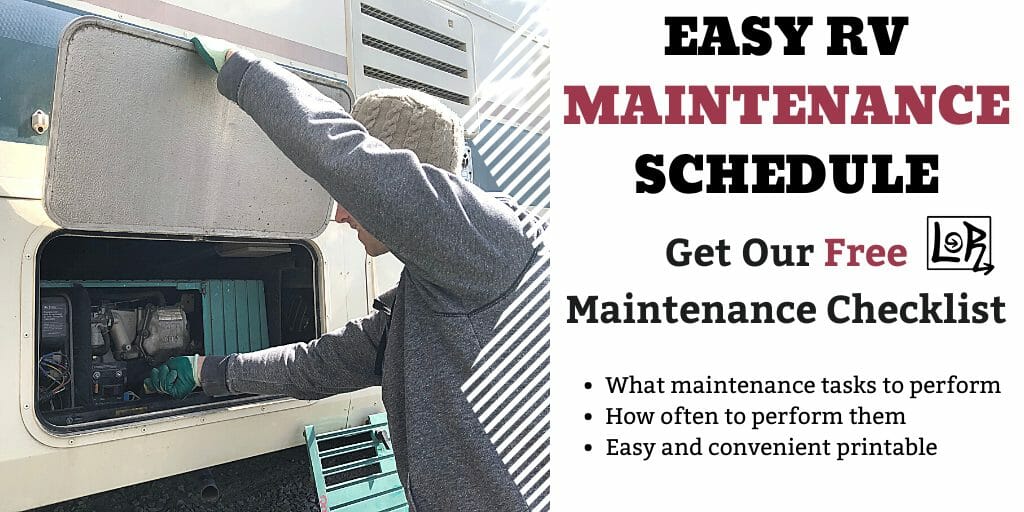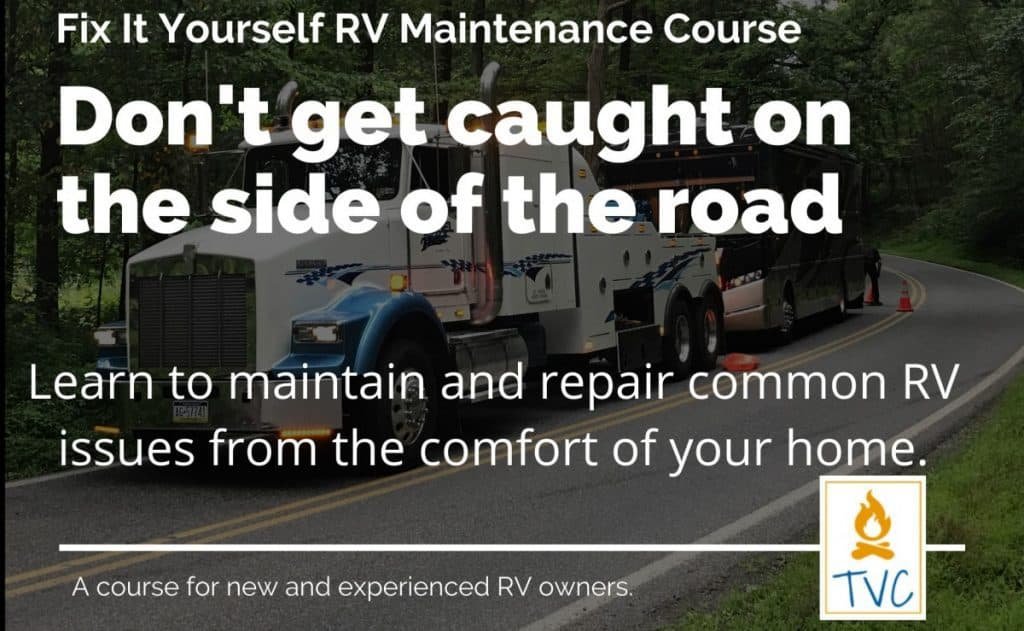This post contains affiliate links.
You may have wondered if your RV refrigerator will run off your battery if you find yourself having to dry camp with a stocked fridge. RV refrigerators are not meant to run on battery alone for long periods of time, and it depends on your RV model, but exactly how much time you have is going to depend on a number of different factors.
An RV refrigerator will run off of the battery if your fridge model is set up for it or if it uses propane too. An absorption fridge will run on batteries only for about 3 hours but if using propane too it will last for weeks. A residential RV fridge will last for about 12 hours on batteries.
You just put your food in your refrigerator, the last thing you want now is to lose it because your battery can’t go the distance. Knowing how long you have to run your refrigerator is a matter of understanding your setup, and I’ll help you figure out how much time you actually have.
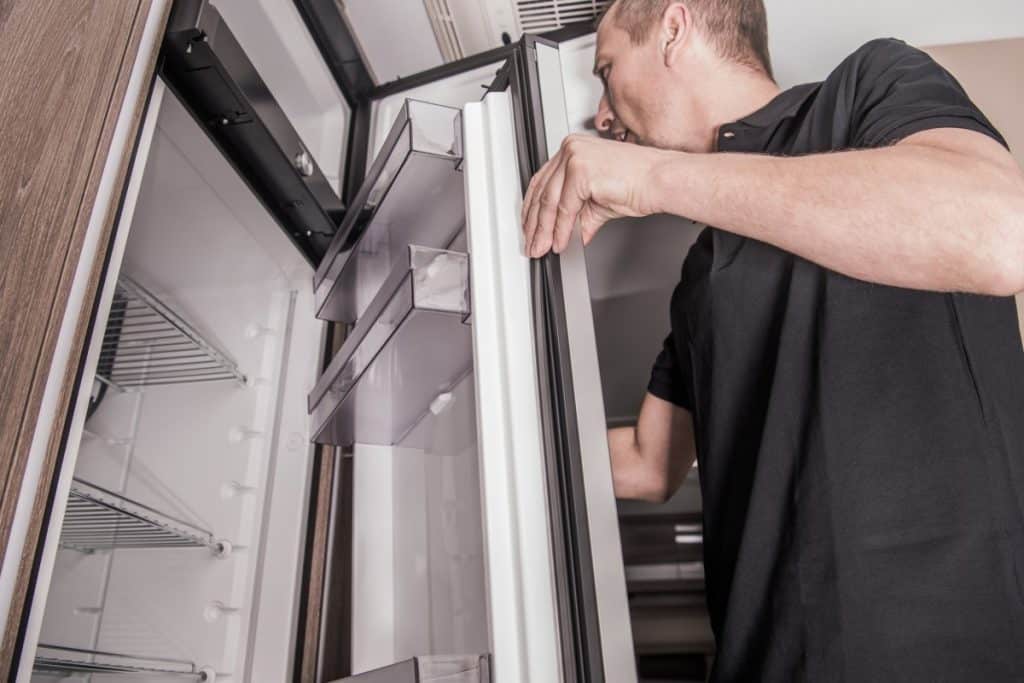

Table of Contents
How Long will an RV Fridge Run on Battery?
There is no single answer to this question, unfortunately, other than it depends. Which I get is a highly unsatisfying answer. Many different variables come together to determine the life of your refrigerator on battery, and it’s a question that you’re going to want to know the answer to before you end up dry camping or boondocking.
One factor that is going to have the largest impact is whether your refrigerator is a compression fridge or an absorption fridge. Compression fridges or “residential” fridges tend to run for much longer on battery – up to 12 hours – compared to absorption fridges that usually last around 3 hours.
Another thing to consider is what kind of battery you have. Some RVs run off of a single 12-volt battery, while others run off of four 6-volt batteries. Some batteries are also built for heavy use and can be drained to only 20% remaining. Knowing what kind of battery is in your RV and what its battery rating is will let you calculate how many hours your refrigerator will run.
Say you have a 12-volt battery with a rating of 100Ah, or amp-hours. This means that the battery will put out 5 amps per hour for 20 hours before being completely drained.
If you have a 240 watt inverter that you want to plug into this battery, divide the watts by the volts to get the number of amps needed per hour. 240W/12V is 20A. Because this will be four times the demand as the battery rating, the battery will last for a fourth of its normal time or 5 hours.
You should never drain a battery past 50% that isn’t meant to be used heavily, so realistically with the above setup you would have 2.5 hours to use your fridge.
So how long will an RV fridge run on battery? You now know how to calculate it once you have all of the information, but you don’t have to revisit your high school physics class to get the same answer easier. All it takes is knowing a little more about what your RV setup looks like.
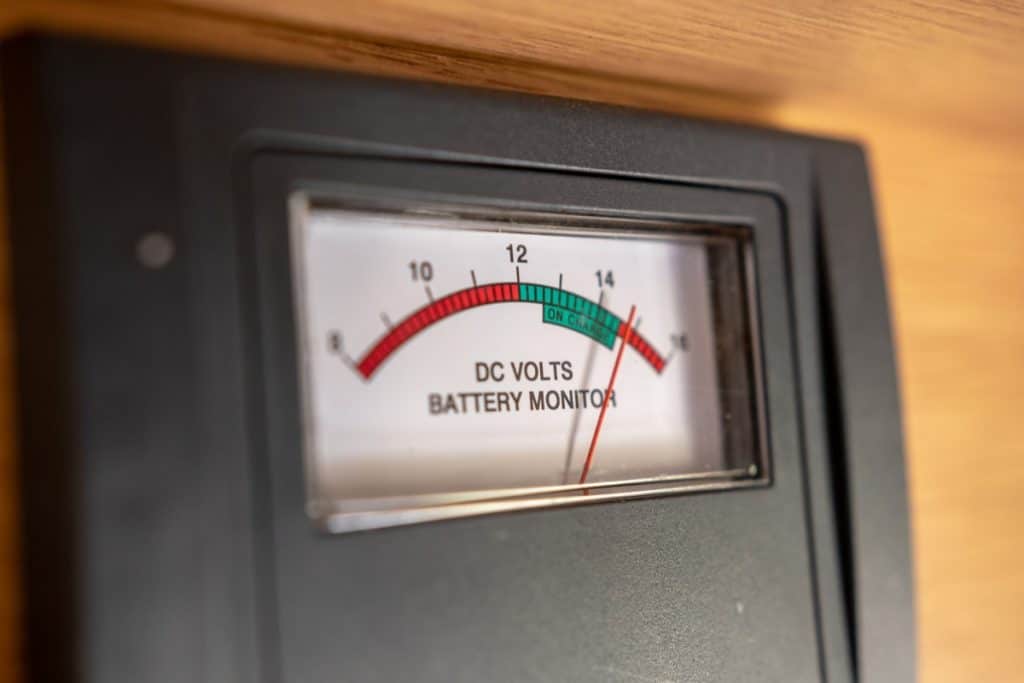
2-way RV Fridges and Battery Usage
A 2-way refrigerator refers to an absorption refrigerator that can run off of either LP gas or AC power. Since all batteries put out DC power, you’re going to need an inverter to run these refrigerators on batteries.
Unfortunately, this will use your battery power very quickly and some RV setups may not even allow it. You cannot run a 2-way refrigerator without an inverter.
One great thing about these refrigerators is that if you run them on LP gas, the battery usage is minimal and will last you weeks instead of hours. You may be asking yourself will RV fridges work without battery, and the answer, unfortunately, is no.
While the battery is mainly used to power the front thermostat and control panel, the front LEDs, and any other added features, the refrigerator is not able to run without these.
Knowing that you have a 2-way fridge running on an inverter, the information out there states that your battery will last about 3 hours. But there are so many factors that can affect this so I’ll show you how to calculate the length of time you can run your fridge on battery only.
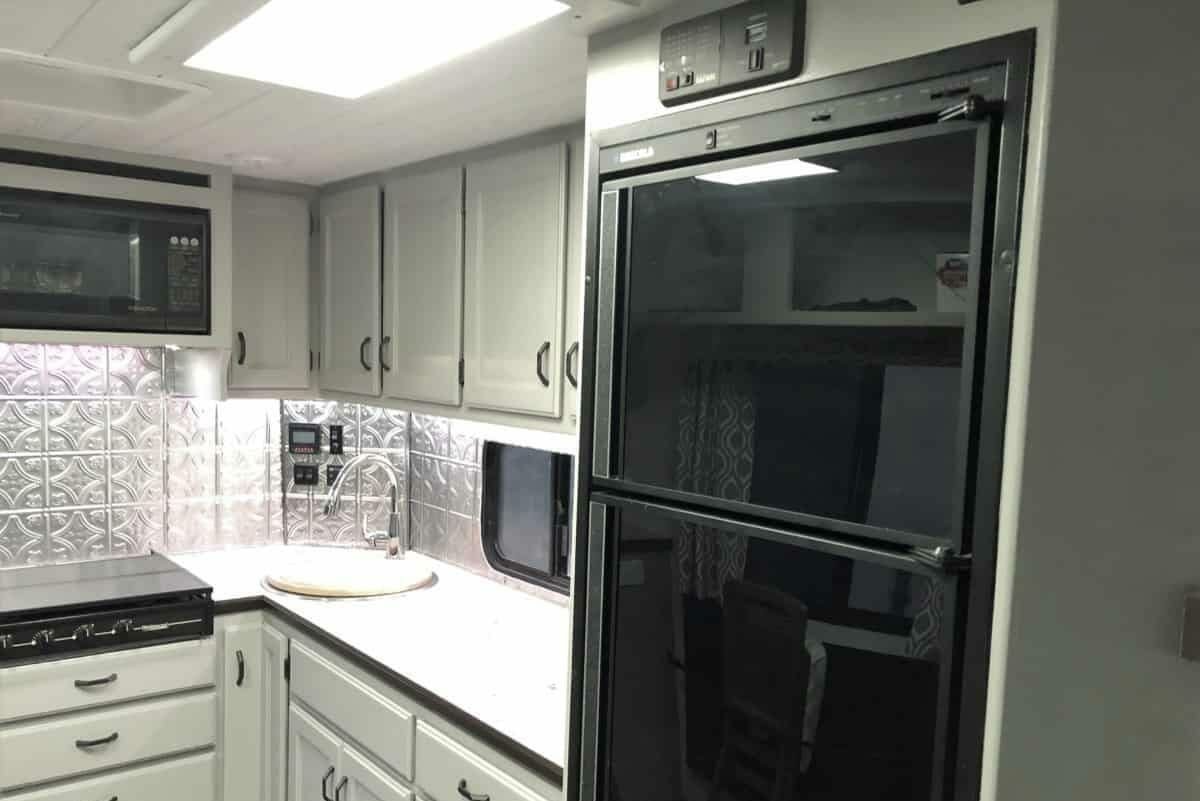
You’ll need to find out the following information, how much power you fridge uses, how many amp hours each of your batteries are, how many batteries you have, and how efficient your inverter is (if you can’t find this assume 90%).
Our 2-way fridge uses around 400 watts on AC power, and we have 2 12-volt deep cycle batteries which rate around 90Ah each. We also have to take into account our inverter. Most inverters are about 90% efficient.
So if my fridge needs 400 watts then I take 400×1/0.90= 444 watts total power required. Now convert the power to amps by dividing by voltage, 444W/12V= 37A. Next step is to divide the amp hours of your battery by the current to find how long the fridge will run, 180Ah/37A= 4.86 hours.
But you don’t want to fully drain your batteries either. Lead acid batteries should not be drained more than 50% so for our case we can only run our fridge for about 2.5 hours on battery only. This is also assuming we aren’t using any other power in our RV.
Fridge Power x 1/Inverter Efficiency = Power Needed
Power Needed / 12V = Current Needed From Battery
Battery Amp Hours x # of Batteries = Total Battery Amp Hours
Total Battery Amp Hours / Current Needed From Battery = Total Fridge Run Time on Battery
Total Fridge Run Time on Battery / 2 = Useable Battery Run Time
3-way RV Fridges and Battery Usage
3-way fridges are very similar to 2-way fridges in that they are absorption refrigerators that can run on LP gas and AC power, but they have the added ability of being able to run on DC power directly. This removes the need for a power inverter, and overall increases the efficiency of the refrigerator.
These work almost exactly the same as the 2-way fridges in regards to their power use while on LP gas, and they are the most common refrigerator type in newer RV models.
Since you can ditch the inverter and run just off of DC power this does increase your run time a bit, according to some internet sources, it can bump up to 6 hours, with other sources even claiming 8-10 hours. But let’s check the math.
I sourced a similarly sized fridge to my current 6 cubic foot 2-way absorption fridge and found it used a bit less power, about 324 watts. Our calculation is a bit easier since the inverter is out of the loop but the process is similar.
So if my fridge needs 324 watts I convert the power to amps by dividing by voltage, 324W/12V= 27A. The next step is to divide the amp hours of your battery by the current to find how long the fridge will run on battery, 180Ah/27A= 6.66 hours.
As I mentioned above you don’t want to fully drain lead acid batteries so really you can get about 3.5 hours of fridge usage on battery.
Power Needed / 12V = Current Needed From Battery
Battery Amp Hours x # of Batteries = Total Battery Amp Hours
Total Battery Amp Hours / Current Needed From Battery = Total Fridge Run Time on Battery
Total Fridge Run Time on Battery / 2 = Useable Battery Run Time
But you can find more efficient, smaller 3-way fridges. I did see one Dometic that was a 3 way and 5 cubic feet (think mini fridge) that only used 175 W, so that baby would have about 6 hours of useable battery run time.

Which RV Fridge Should You Get?
If you’re in the market for a new RV refrigerator and you want to be conscious about its battery usage, you’re definitely better off getting a 3-way fridge over a 2-way. The increase in battery life is incredible and you don’t have to worry about having an inverter.
As for whether or not you should get an absorption fridge or a compression (residential) fridge, that is going to depend on how you camp more than everything. Absorption fridges don’t cool property if they aren’t completely level, so if you do a lot of boondocking then you may want to consider a compression fridge.
Compression fridges tend to be a lot bulkier, however, so the space you have available may or may not accommodate a compression fridge. If you store a lot of food consistently then you may want to go for the compression fridge, not only for the added space they tend to have but also for the higher battery life (10-12h) and the more even cooling on the go.
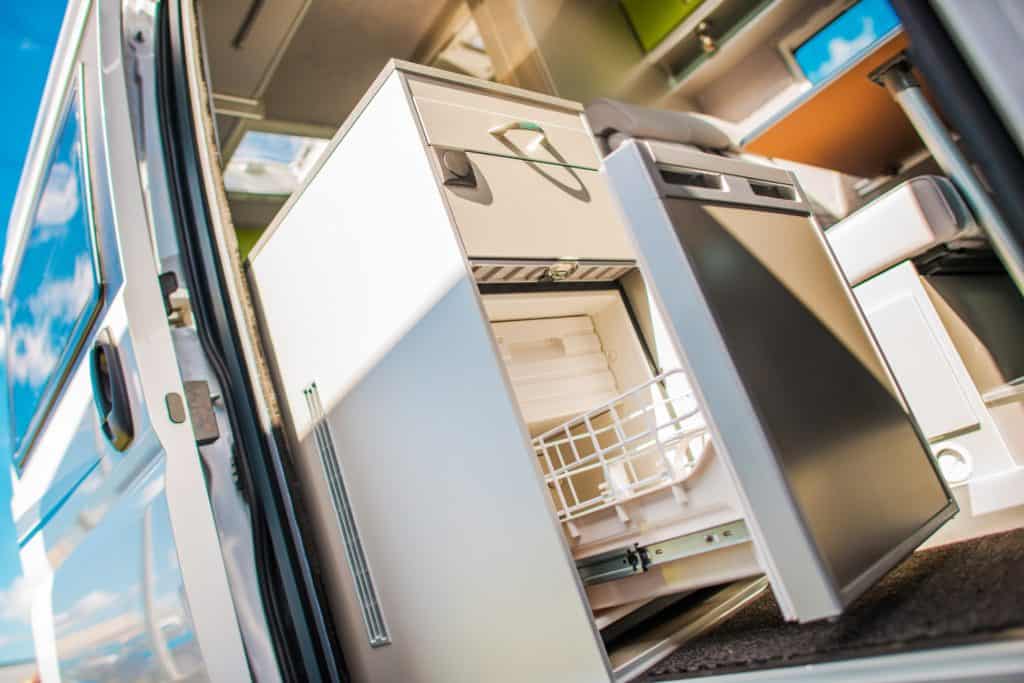
Fix It Yourself RV Maintenance Course
The most costly parts of RV ownership are repairs and maintenance. That’s why I recommend learning to do your own RV repair and maintenance.
The Fix It Yourself RV Maintenance Course is the perfect way to learn how to do the most common repairs and maintenance on your RV. A Certified RV Technician wrote and filmed the course so you know the information is actually correct.
Plus it’s downloadable so you can access it from anywhere, even when boondocking in the middle of nowhere with no service.
Find out more about the best RV Maintenance and Repair Course available!
Will an RV Fridge Work Without the Battery?
You may be thinking of ways to save battery power by unplugging the fridge altogether and letting it run on LP gas alone. But do RV fridges need battery to run on propane? As I mentioned above, they actually do.
While the role of batteries in 2- and 3- way fridges may seem trivial, it is vital that the thermostat of the refrigerator is running when the rest of the system is on to regulate the internal temperature. Once you take into consideration all the parts that need battery power it’s not a matter will an RV fridge run without battery but how long will it run with the battery.
Will an RV Fridge Run off the Battery While Driving?
Many don’t recommend running your fridge on liquid propane gas while driving. But there is no hard and fast rule, it’s more a matter of what you are comfortable with. That being said if you are driving with your fridge on LP, you are driving down the road with an open flame.
If you are using your refridgerator on LP while driving you should be take the necessary steps to shut down the LP prior to entering a gas station, boarding a ferry or entering a long tunnel.
Fortunately, depending on your set-up and your fridge, you may be able to use your battery to keep your fridge cold while driving, which saves you from having to mess with LP gas on the go.
Driving is one of the best times to use the battery to power your fridge, because the battery is constantly getting recharged by the alternator. If you have a motorhome the alternator is built into the engine and battery, and if you have a pull-behind your truck battery is actually what’s powering the fridge with its alternator working to replenish the supply.
So will RV fridges run off of battery while driving? They sure will. If you’re still looking for another option, however, you could always run your generator and use AC power to run your fridge. You may be concerned about how long your generator will last. I have a full article covering this, How Long Can You Run an RV Generator? Plus Tips to Save Fuel.

Closing Thoughts
While it is certainly possible to run a refrigerator off of battery power, you’re going to want to know as accurately as possible how long that is in order to keep your food from going bad while you’re camping. No matter what refrigerator and setup you have, you can calculate your battery life in hours per day and find out what exactly the capacity is of your RV battery.

